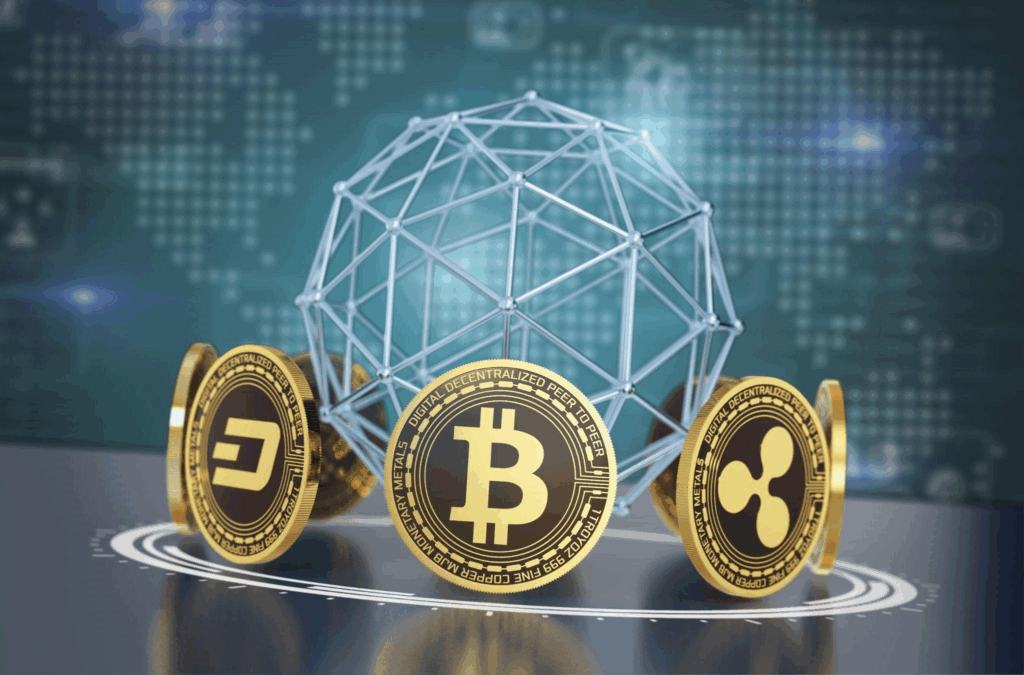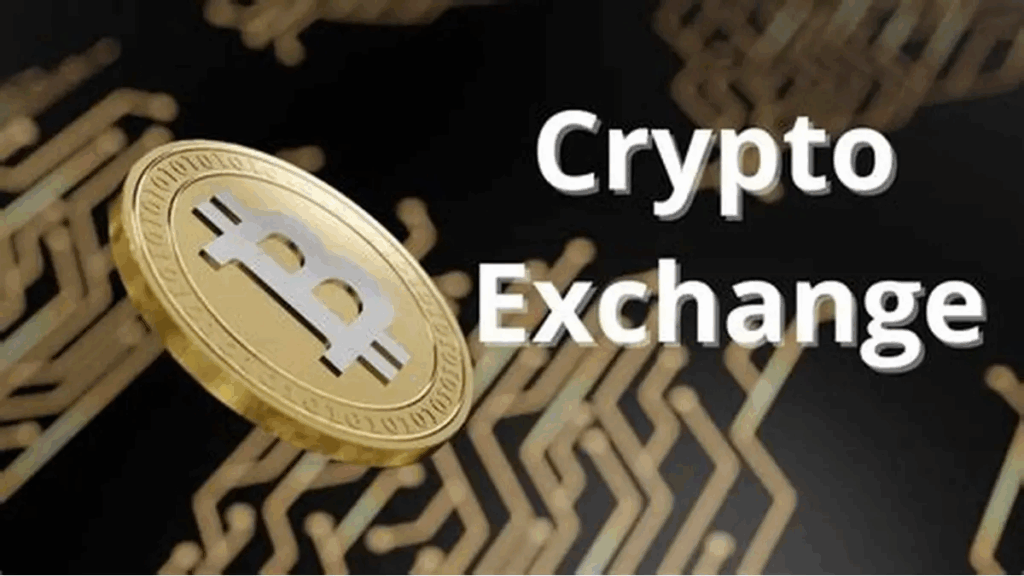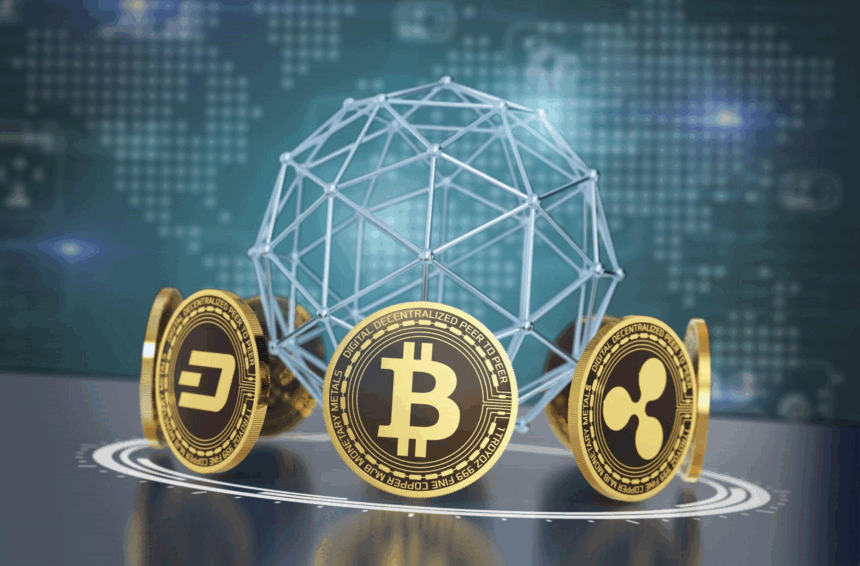In this article, I will discuss the How to Exchange Crypto in India, covering the legal framework, top platforms, and a detailed procedure to trade without risks.
Be it a novice or a seasoned trader, mastery of secure techniques and evading blunders is vital. This will empower you to exchange crypto in India and adhere to the law without hesitation.
What is Crypto Exchange ?
A cryptocurrency exchange is an online marketplace for purchasing, selling, or trading cryptocurrencies such as Bitcoin and Ethereum.
They also enable the conversion of cryptocurrencies to fiat currency and other digital currencies.

Exchanges can be divided into two central types: centralized exchanges (CEX) which have a third-party managing the trades between users, and decentralized exchanges (DEX) which do not require an intermediary as users trade directly with each other.
Along with having access to digital currencies, crypto exchanges promote trading by adding liquidity in the economy.
How to Exchange Crypto in India Step-by-Step Process

Example: Converting ₹10,000 INR into USDT on CoinDCX
CoinDCX account registration
- Go to CoinDCX’s website.

- Use your email and phone for signup.
- Complete KYC verification using PAN and Aadhaar.
Add INR funds
- Click on “Funds”.
- Deposit ₹10,000 via IMPS, NEFT, or RTGS.
- No fees for deposits.
Purchase USDT
- Go to “Buy Crypto”.
- Select USDT and input ₹10,000.
- Confirm purchase after checking the exchange rate.
Get USDT in your wallet
- You should observe the USDT balance in your CoinDCX wallet.
- It is available for trading, transferring, or holding.
Optional: Store in cold storage
- For better security, transfer USDT into a hardware wallet like Ledger or Trezor for long-term storage.
Best Crypto Exchanges for Indian Users
ZebPay
ZebPay is easily among the top crypto exchanges for Indian users considering its early establishment in the industry and its efforts towards compliance. What sets ZebPay apart is the focus put on security, such as insured wallets and other stringent inactive processes designed for Indian users.

The exchange also has a simple and user-friendly interface that appeals to new traders, but does not compromise on features required by professional traders. ZebPay’s reliable crypto trading services in India are further enhanced with effortless INR integration, quick withdrawal processing times, and excellent customer service.
Security Tips When Exchanging Crypto
Enable 2FA – Two Factor Authentication: Your account on the exchange is more secure with two-step verification in place.
Create and Use Complex Passwords: Avoid using the same password across different platforms and create unique and complex passwords.
Public Wi-Fi Is Off Limits: Public networks and exchanges are off limits.
Do Not Log In from URL Links Sent to You: Verify the address you are typing so you do not fall for phishing scams.
Crypto Should Not Be Kept On An Exchange But In Private wallets: Avoid crypto exchanges for storing funds as large balances should be kept in private wallets.
Keep Changing the Operating System Software for the Browser and Exchange Apps Regularly: Make sure your exchange applications, browser, and operating system apps are up to date.
Emails And Messages Need To Be Handled With Care: Overly keen responses to unsolicited crypto inquiries could lead to malicious links designed to defraud you.
Do Not Forget To Check How The Exchange Protects Its Customers: Look for back cold storage, audit reports and the history of the exchange’s security.
Fees and Transaction Costs to Consider
Trading Fees
Most exchanges will have a fee which is a percentage of the transaction(usually between 0.1%–0.5%). The fee will be determined depending on if you are a maker or taker.
Deposit Fees
While INR deposits through UPI or Bank transfer are usually free, certain platforms may incur fees for other methods.
Withdrawal Fees
Withdrawing crypto or fiat can have fixed or variable fees associated with it based on the asset and payment method used.
Network Fees
Transacting on the blockchain (especially bitcoin or ethereum) has miner or gas fees associated which fluctuate based on congestion on the network.
Conversion/Spread Costs
In most cases, the exchanges will quote an extra spread above the actual purchase and sales prices which will in turn affect the rate you get.
Inactivity or Maintenance Fees
In certaincases, some platforms users maintain accounts without using them have to pay fees.
Common Mistakes to Avoid

Skipping KYC Verification: Bypassing the KYC process often results in flagged accounts and suspended withdrawals or access.
Using Unregistered or Unsecure Exchanges: Transacting on unregulated platforms always puts one at risk of scams and losing their money.
Ignoring Tax Compliance: Not reporting crypto profits can lead to investigations and fines due to Indian tax regulations.
Falling for Phishing Scams: Unauthorized applications and links can be detrimental to your funds; make sure to only check official websites.
Chasing Hype Without Research: It is risky to blindly follow social media trends as they can result in buying worthless tokens.
Overlooking Fee Structures: Paying less attention to trading, withdrawal, or even network fees can result in losing hard earned profits.
Conclusion
Due to clearer regulations and simplified platforms, trading crypto in India has become more accessible. Following steps like choosing a reliable exchange, completing KYC, securing assets, and comprehending fees ensure safe and confident trading.
Always stay updated on legal changes and avoid unfounded assumptions like using unverified platforms or tax evasion. Like in many other countries, with the right intentions, exchanging crypto in India can be a protected endeavor, equally rewarding for seasoned traders and novices alike.
FAQ
Is it legal to exchange cryptocurrency in India?
Yes, it is legal to buy, sell, and exchange cryptocurrency in India. However, traders must comply with KYC norms and tax regulations set by Indian authorities.
Do I need to complete KYC to trade crypto in India?
Yes, all major Indian exchanges require KYC (Know Your Customer) verification to comply with local financial laws and ensure safe trading.
Which is the best exchange to use in India?
Top crypto exchanges in India include WazirX, CoinDCX, ZebPay, Bitbns, and CoinSwitch, each offering INR support and strong security features.









